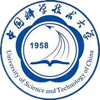Mission of the Workshop
Ever since its discovery in 1911, superconductivity as a macroscopic quantum phenomenon has been playing a central role in shaping the mainstreams of condensed matter and materials physics. The field continues to witness breakthrough discoveries, each quite often is also accompanied by perplexing and lasting mechanistic challenges. The newly launched Physical Review Workshop on New Frontiers of Superconductivity will bring together world-leading experts in experimental and theoretical physics to address critical issues at the frontier of the field. Particular emphases will be given to latest developments surrounding new systems and materials, new experimental approaches and probes, new theoretical mechanisms and formalisms that, collectively, point to potential new directions for development and new applications (such as topological quantum computing). Besides perspective reviews, the highly selective invited speakers will also be strongly encouraged to present new, unpublished work to expand the overall scope of the workshop and expected dynamical discussions. The workshop participants will also be encouraged to contribute to the poster sessions.
Overall, the workshop aims to bring together early, mid-career, and senior physicists to identify relevant theoretical and experimental issues to develop further. In addition, representative editors from the Physical Review journals will participate to assess editorial needs and challenges in these research directions.
Background of the Workshop
The Physical Review Workshops focus on topics that straddle traditional subject boundaries and new ones that are starting to “emerge from the noise”. They are being developed as the expanded versions of the Physics Next Workshops. Since its lauching in 2017, all the Physics Next workshops had taken place in scenic Eastern Long Island, not far from the location of the APS editorial offices. The present workshop would be the first to be held far away from Long Island, but would still be well attended by the relevant Physical Review editors.Collectively, the goal of these workshops is to provide a setting to promote open and informal discussions and the exchange of information needed to help assess the promise and challenges of an emerging field. With this in mind, the workshops comprise only a limited number of presentations and leave considerable room for informal conversations, round-table discussions, and social activities.

